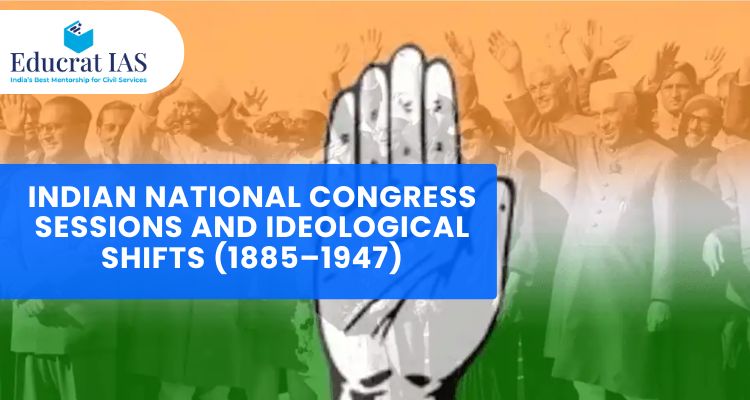A New Era in Indian Education: What You Should Know Now
Imagine you’re a UPSC aspirant in
Kolkata, chasing your dream through a maze of entrance exams, eligibility criteria, and inconsistent university recognitions. What if the very institutions deciding your academic legitimacy are about to be overhauled?
That’s exactly what’s happening with the
Reconstitution of the Association of Indian Universities (AIU) under the
National Education Policy (NEP) 2020. And yes,
this change directly affects your academic future.
Before you move on, here’s why you should care: AIU isn’t just a club of universities — it plays a central role in recognizing degrees, standardizing curricula, and ensuring smooth admissions across India and abroad.
What Is the AIU and Why Is It So Important?
The
Association of Indian Universities (AIU) is a pivotal body responsible for:
- Equivalence of foreign and Indian degrees
- Facilitating inter-university cooperation
- Representing Indian universities globally
- Advising the government on academic policies
In simpler terms, if you’ve ever wondered whether your
IGNOU degree is valid for UPSC or if your foreign education counts in India, AIU is the deciding body.
Why Is the AIU Being Reconstituted under NEP 2020?
The National Education Policy 2020 envisioned a
completely transformed higher education ecosystem. But here’s the catch — AIU’s current structure hasn’t evolved to keep up.
Key reasons for reconstitution:
- Align with multidisciplinary learning models
- Ensure standardized equivalency of credits and qualifications
- Strengthen academic bank of credits (ABC) framework
- Enhance global collaborations with new-age universities
According to
The Times of India, a high-level committee is working on restructuring AIU to integrate it under the future
Higher Education Commission of India (HECI).
How This Impacts Students in Kolkata & Eastern India
If you’re based in
Kolkata, Salt Lake, or Barrackpore, here’s how it affects you:
1. Simplified Degree Recognition
Students with dual degrees or foreign certifications can expect
faster and more transparent recognition processes.
2. More Clarity in Eligibility
UPSC, SSC, State PSCs, and private institutions will have
uniform eligibility guidelines.
3. Smoother Inter-College Transfers
Thanks to the
Academic Bank of Credits, students can now shift colleges (like from Jadavpur University to Presidency) without academic loss.
4. Better Alignment with Global Systems
Degrees from Indian universities will be easier to validate abroad—crucial for international scholarships or work.
But Wait — What About Concerns Around Federalism and Autonomy?
Before you celebrate, note that
state universities and regional boards may fear losing their autonomy.
Common challenges:
- Centralization of power in higher education
- Potential erosion of state academic identity
- Conflict with local language and cultural curricula
However, the committee has promised to ensure
cooperative federalism. The focus will be on creating
regional AIU chapters, especially in educational hubs like
Kolkata.
NEP 2020 and HECI: The Bigger Picture
This reconstitution is not an isolated reform. It’s part of a larger framework:
Upcoming Changes:
- Four verticals under HECI: Regulation, Accreditation, Funding, and Academics
- NTA’s growing role in all-India standardized testing
- Digital integration via DigiLocker and NAD (National Academic Depository)
All of these changes point to one thing:
streamlined, tech-enabled, and globally-aligned higher education.
Want to explore how this affects competitive exams like UPSC? Read our blog on
Why AANKLAN Prelims Test Series by Educrat IAS is Your Best Bet.
Also check our guide on
UPSC Eligibility & Degree Requirements to see how AIU recognition plays a vital role.
What You Should Do Now
If you’re in college, check your institution’s AIU status.
- Planning to study abroad? Ensure your credits are part of ABC-compliant systems.
- For UPSC aspirants, track changes in eligibility criteria linked to degree equivalency.
Need Guidance on Degree Validity or UPSC Prep?
At
Educrat IAS, we specialize in mentoring students from
Kolkata and Eastern India through every academic and competitive challenge.
Let’s make it easier — Call us now at +91 91473 88921 or visit our centre in Ballygunge.
FAQs on AIU Reconstitution under NEP 2020
Q1. Is AIU recognition mandatory for UPSC exams?
Yes. The UPSC requires degrees from recognized institutions. AIU validates foreign and some private degrees.
Q2. Will my foreign degree be accepted more easily now?
Yes. The reformed AIU is expected to simplify foreign degree equivalence.
Q3. Can I transfer from one university to another without credit loss?
Under NEP’s ABC system, credit transfers will be standardized and AIU will help regulate it.
Q4. What if my university is not part of AIU?
Contact your college’s admin. Non-affiliated institutions may face limitations in national-level exam eligibility.
Q5. How does this impact online degrees?
AIU and HECI will also evaluate
online & distance degrees under unified quality guidelines.
Follow us on our social media channels for the latest updates:
Telegram : Join our Telegram community for daily current affairs, free PDFs, and important UPSC updates.
Instagram: Follow us on Instagram for quick tips, answer writing guidance, reels, and motivational posts.
Facebok: Like our page to stay connected with webinars, UPSC trends, and student success stories.
X : Follow us for crisp analysis of editorial opinions, government policies, and international affairs.
Call us now at +91 91473 88921 or visit
educratias.com to start your UPSC journey with Kolkata’s most trusted institute!
Don’t just scroll—engage, learn, and transform your preparation with Educrat IAS!






